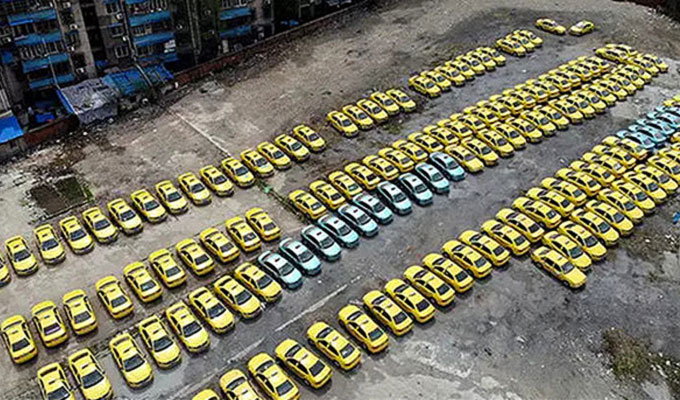It used to be that it could be impossible to find a cab in Nanjing, especially if it was raining, or 6pm. Contrast this with today’s situation, in which thousands of taxis go literally unused for the whole day, and for days at a time. Needless to say, it is all down to competition from the taxi hailing APPS, such as Didi Chuxing. Yet, their dominance is far from guaranteed, and they know it.
First, a few nuggets gleaned from experience on the other side of the world. Uber is still trying to appeal its 2017 denial by Transport for London (TfL), to continue its London license. TfL has explained its decision was based on evidence the company had continued failing to perform background criminal checks on its drivers. As a result, the company has been deemed “not fit and proper” to operate as a taxi service.
“My fear is that Uber is going to lead to a cycle of cataclysmic disinvestment. They will try to siphon off the most profitable customers and leave public transport a rump service”, said Greg Lindsey, for the New Cities Foundation, speaking to The Guardian.
Indeed, the Californian company has swept the world with its revolutionary technological innovations. However is has failed to crack the biggest and most profitable market in the world, the Chinese behemoth. Within her borders, Uber came into direct competition with Didi Chuxing, its Chinese equivalent. After some years of battling the back alleys of China’s urban cities, Uber was eventually bought out by Didi who has continued roaming the streets ever since.
Yet, if Didi has anything to learn from its American counterpart, then the sensitivity regarding taxi drivers and existing public transport services is a good example. While TfL has discontinued Uber’s licence to operate in London, it has been reported by The Paper in China, that Nanjing has 3,000 public taxis lying idle, as a direct impact the online car hailing service is having.
Just like the London cabbie’s, thousands of Nanjing drivers quit their jobs in 2017 to go and work for online alternatives. “Initially, there were around 1,000 city cabs without drivers, but that number has risen to 3,000 in just one year”, chief secretary of the Nanjing Taxi Association, Liang Qiang, told Chinese media. However, this has worked in Didi’s favour, as these ex-drivers are contributing to its company growth.
“I’ve just returned from Sweden, where I have been working for the last four years,” Didi driver Sam told the Nanjinger. “I’ve literally just started today, I thought I’d give it a try while I’m in between jobs. But I don’t know if I’ll continue, I’ve been driving for three hours already and have only made ¥70”.
New competition for Didi has come in the form of another rather popular Nanjing-based servicing APP, Meituan Dianping. In an ongoing price war between the two companies, which has been referred to as the “red envelope war”, both companies have basically been giving away free rides in order to gain popularity. Analysts have commented that this price war has seriously upset the market and has accelerated the shrinkage of the traditional industry.
According to The Paper, the number oftraditional taxi trips taken in Nanjing in January, 2018, was down a dramatic 50 percent on the same period last year. In addition, the monthly income for a 12 hour-a-day taxi driver went down from the average ¥6,000, to ¥4,000, slightly less than the minimum working wage.
While Meituan battles it out with Didi, the former is flexing its dominative muscle as it looks to “buy a big stake” in the successful bike sharing APP, Mobike. It has been reported that the company is to part with a whopping $3.7 billion, in order to buy into Mobike. Nothing about the deal has been confirmed, but it could amount to an outright buyout.
“Meituan’s entry into the shared-bike business is expected to complicate the fiercely competitive sector, which has increasingly seen as a new battlefield for the competing mobile payment platforms of tech giants Tencent and Alibaba”, said Sun Wenjing for Caixin.
Uber drivers have been accused and proven guilty all over the world of sexual harassment and endangering the lives of others. Cases in India, the UK, Australia and elsewhere has strained public trust in taking rides alone. China appeared immune to such allegations until in 2016, when a 30-year-old Beijing woman accused a Didi driver of sexual harassment, and claimed customer assistance mishandled her complaint. Adding to this, in the same year Didi promised to step up security following the death of a passenger who was allegedly killed by one of its drivers.
However, unlike Uber, users did not discontinue their use of Didi after its 2016 run of bad luck, meaning the startup has kept its stronghold on the nation. That is until Meituan upped its game, by recently reporting 200 million more users than rival Didi. Just to keep things interesting, Alibaba has also just jumped into the fight, introducing AutoNavi, its navigation service









